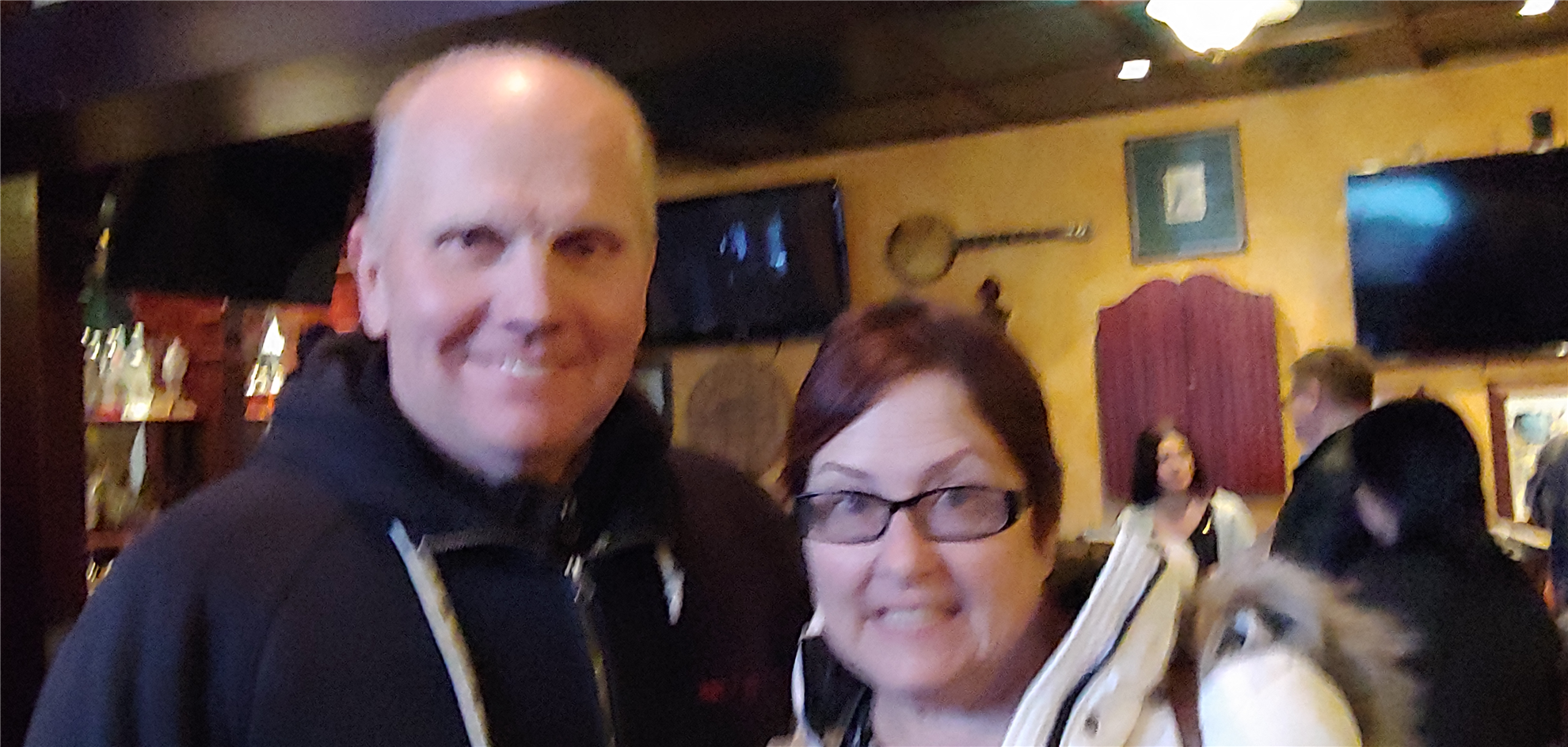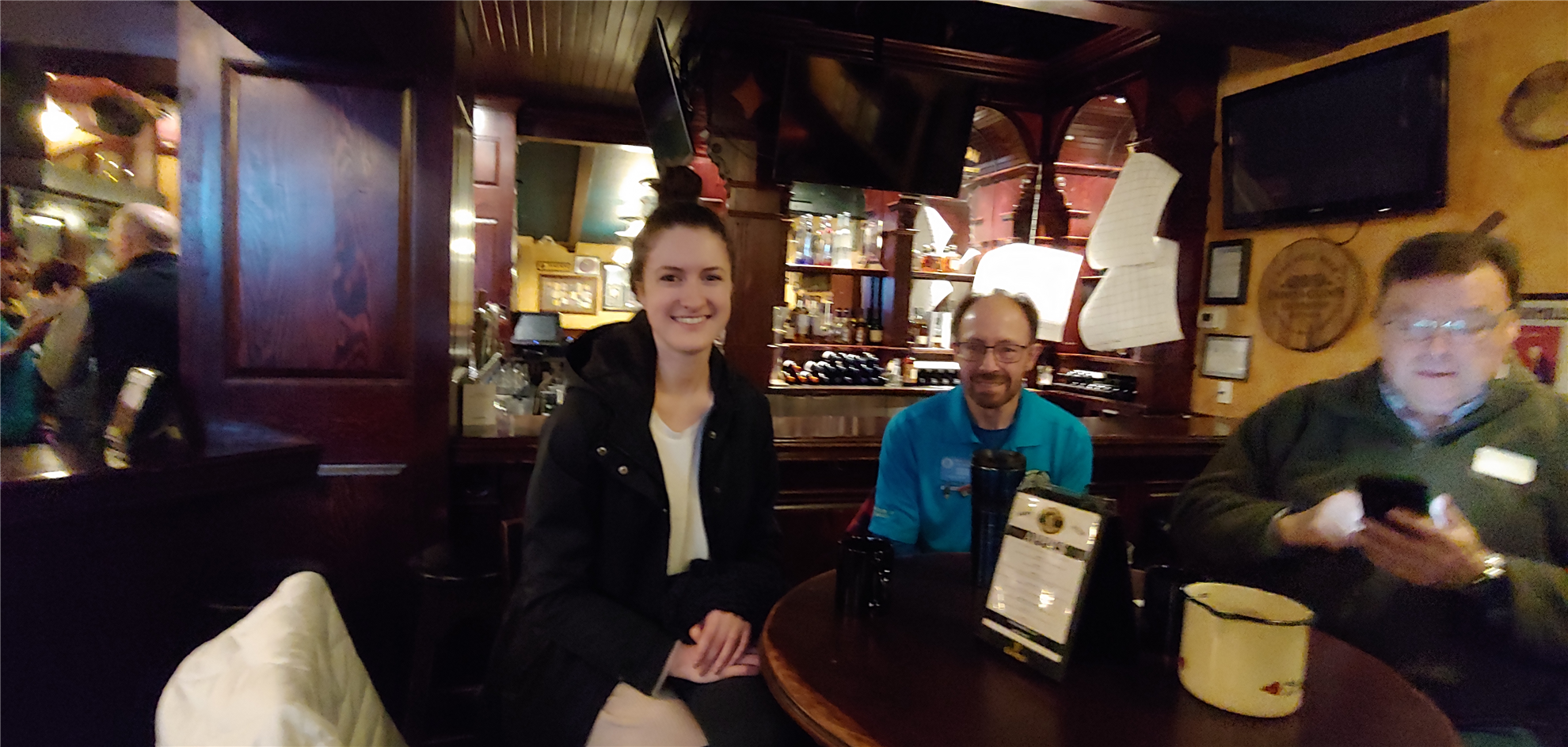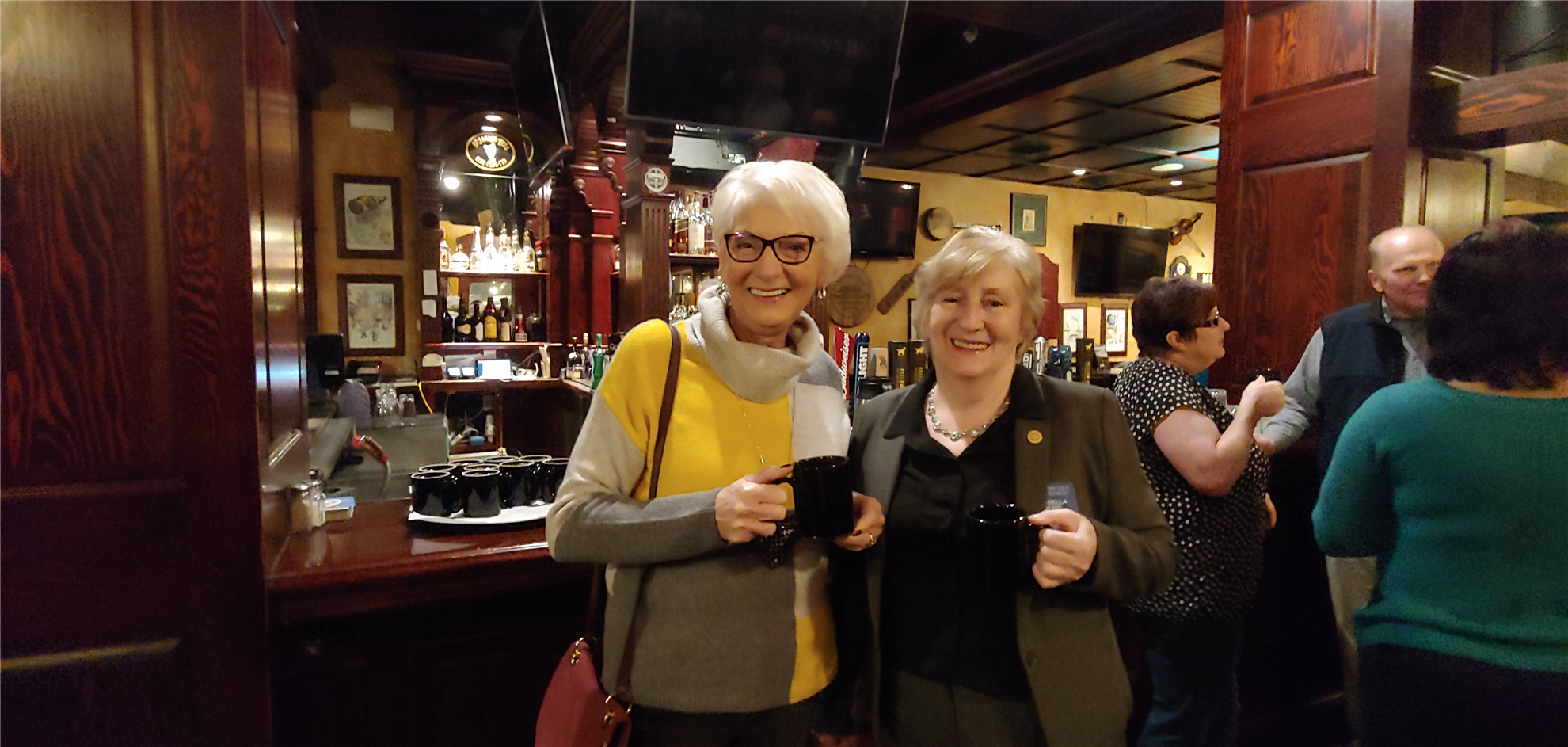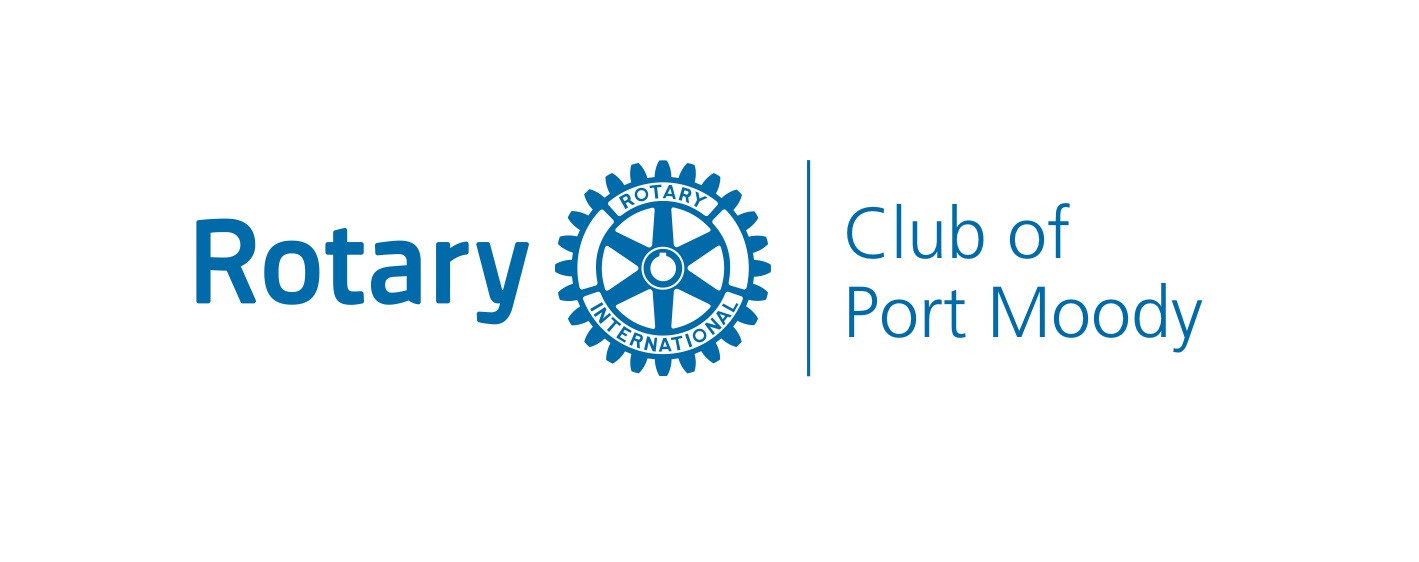PP Alan S. ably filled in for President Ian who was away in Calgary.
Guests: Meghan’s husband Paul Lahti,

Emily Astren was Steve Witiuk’s guest (she worked at CIBC with Steve and she will be a RYLA participant this year,

and Gladys Mercer joined us interested in volunteering in her new community (from Newfoundland originally).

.png)
Paul gave an update on our Club’s Community grant project which will focus on teaching 10-15 high school students some of the principles of the Socratic method of learning. Originally the plan was for 10 -12 1 hour sessions over the 2019 Winter/Spring school year but it is morphing into 2 5-6 hour sessions over 1 or 2 weekends.
PP Al S. updated on an exciting new fundraising project being considered by the 6 Rotary Clubs in Area D.
Isy announced she is officially retiring August 31st this year but will continue to arrange trips for a select number of her favorite clients.
SFPP planning is progressing. Alan K will schedule a meeting shortly for those looking to volunteer for tasks on the night of (Thursday May 9th) and for those wanting to volunteer for tasks leading up to the event as well.
Rotary Leadership Institute Level 2 (RLI) will be held Jan 23rd at Meadow Gardens Golf Course.
“Returning” a documentary film premier presented by Mossom Creek Hatchery was on Friday January 18th at 6:30 at Inlet Theatre.
Thanks to everyone (10 folks) who helped with the Heritage Mountain litter cleanup last week.
PP Al S gave an overview of current International Grant projects our Club is involved in over the next 1-2 years: 1) Ecuador project (President Ian as lead) has funding of $180,000 over 3 years. Canadian Doctors working/teaching local students/medics to identify early cervical cancer and provide early treatment with ongoing video conferencing/mentoring between actual visits.
2) Kenya project (President elect Cleone as lead) working with Kenyan volunteers to expand reading/education initiatives particularly with young girls.
.jpg)
3) Belize project (Al S. as lead) began as an educational project to provide accessibility to computer service/training/education to prisoners. Intent is to rehabilitate prisoners and provide them with tools they can use when they are released.
Al gave a report on his trip to Belize to bring the first batch of equipment to the prison last November. There are approximately 375,000 people in Belize which was originally called the Colony of the British Honduras in 1862, granted self-government in 1964 when European nations were freeing their colonies around the world. In 1973 the name changed to Belize and full independence was granted September 18th 1981. The only prison in Belize is managed by Rotarian, Cisco, and supported by the international Kolbe Foundation. Focus is shifting from incarceration to education trying to prepare inmates for freedom.
Al and Glen’s report included:
Murders at the prison have dropped to 0 and escapes to only 1 or 2 (usually inmates from Guatemala trying to get home).
Prison has a farm teaching how to grow their own food, they raise pigs (but found out prisoners didn’t like pork so now they sell the meat to locals), they have 17,000 chickens used to feed the inmates meat and eggs.
They’ve built a school with 8 classrooms—to teach how to read, how to write, how to cope—country is poor so kids don’t always finish the mandatory years of free education.
They also have a wood working shop to teach carpentry skills. Highest volume items are the coffins they build and sell for funerals, also prefab homes, kids’ toys and furniture on spec.
Our grant is based on using RACHEL—Remote Area Community Hotspot for Educational Learning—technology that holds selected internet content on a wireless hub. The units we supplied were pre-loaded with 100 areas of education and training to be used in the inmate education program.
Cisco, the prison head told Al it was the “best thing you can give to a developing country”
Next steps: 1) add 30-60 chrome books, 2) more servers, 3) add the program to the women’s prison area.
Trip planned for late April (5-7 days) looking for new opportunities in Belize—is there a way to expand the program into the Elementary Schools.
